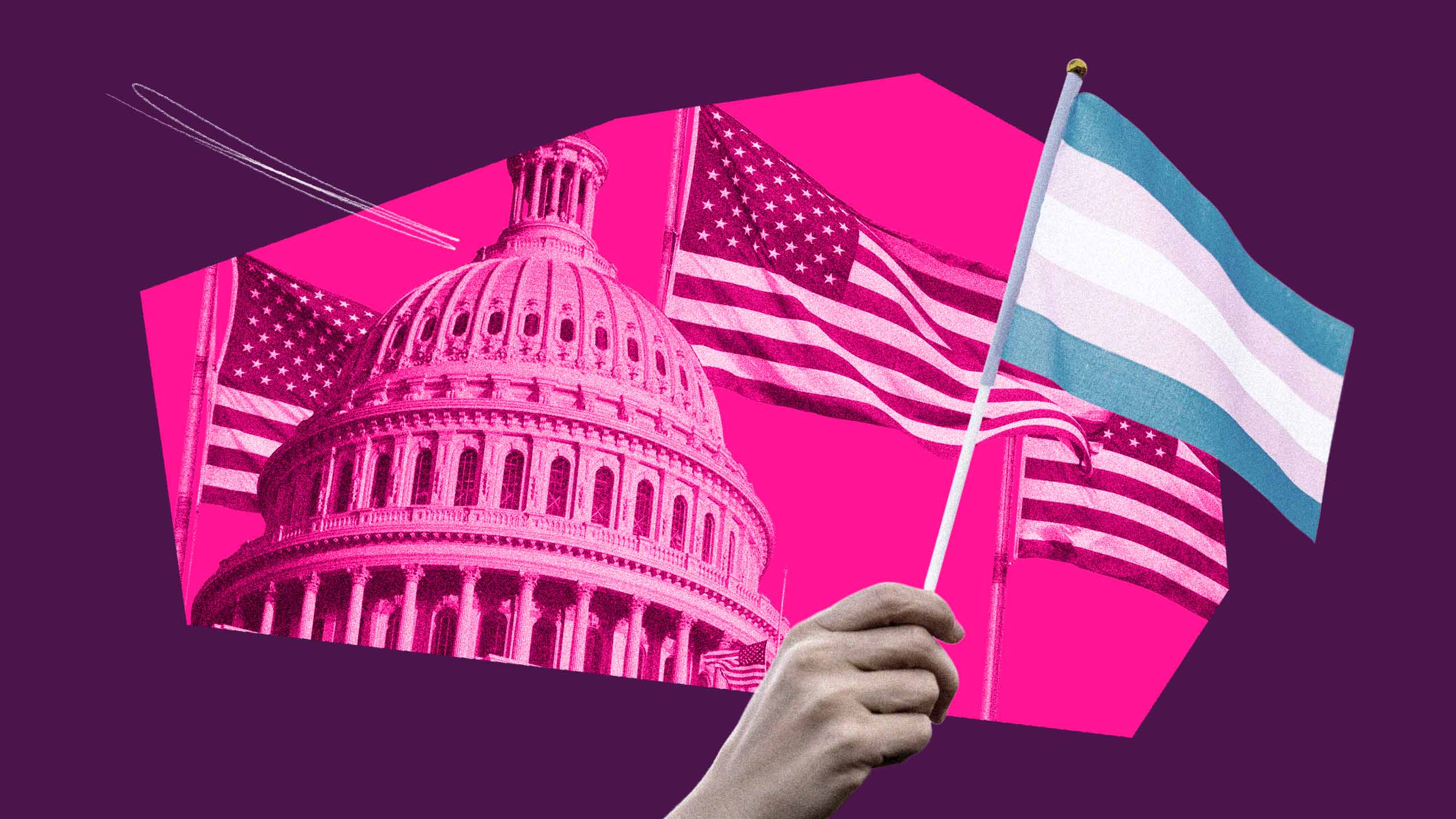Trans awakening came to Sunshine Bella Goodman in the form of tarot cards. During a vacation in 2019, a tarot reader confronted Goodman with a question she had never pondered prior.
“Why do you allow people to call you by ‘he’ if you prefer ‘she’?” Goodman, now 37, recalls the reader inquiring after flipping a card. “But I now understand why I waited so long and why I didn’t allow people to tell me. It’s because that’s how I grew up. I grew up with my father telling me that I’m not a girl. That’s what was ingrained in me. I gave myself permission in 2019 to be all that I am.”
Born in Charleston, South Carolina, and raised in Virginia, the activist and professional stylist returned to the Palmetto State after high school to pursue a career in beauty and haircare. When she began her transition in 2020, she found a second voice as a trans Black woman organizer, advocating for youth accessibility to LGBTQ2S+ resources that she felt she, and many like herself, lacked in their own upbringings.
A year away from the critical 2024 U.S. presidential election, Goodman has partnered with Charleston-based non-profit We Are Family to kickstart #DontDisruptTransLives, a social media campaign that strives to bring visibility to trans lives in the South—and the struggles of an estimated 3,700 South Carolinian trans youth. Charleston, an increasingly progressive city in deep-red South Carolina, partially sits in the sixth Congressional district, which remains the state’s sole Democratic district.
#DontDisruptTransLives lives on We Are Family’s Instagram page and brings together eight trans and non-binary organizers through anecdotal videos. Starting with Goodman herself in late October, queer South Carolinians from many walks of life—from a Montessori teaching assistant to a university theatre major—share how the passage of anti-trans legislation would impact them and South Carolina’s queer community at large. One post is released per week.
“How can I encourage students to be their authentic selves when I no longer feel safe to be my authentic self?” Corazon “Cory” Stegelin, a non-binary, bisexual and intersex preschool instructor, asked in their statement.
The 2023 legislative session set up a year of statehouse battles over queer rights, often targeting trans adults in the name of “protecting the innocence of kids,” as Republican state Sen. Josh Kimbrell argued during a Senate Medical Affairs subcommittee hearing in March. Following other states like Florida, these bills contributed to a record-breaking 500+ anti-LGBTQ2S+ bills that flooded governments nationwide in 2023.
“Tennessee. And you got Alabama and Texas. It’s horrible when it comes to new legislation,” Goodman says about this disturbing trend. “I want to tell them, ‘Hey, don’t disrupt trans lives here either.’ We are here. We’re going to fight for ourselves.”
According to the American Civil Liberties Union (ACLU), 20 anti-LGBTQ2S+ bills were referred to state legislative committees in South Carolina this year. Among them: proposals to restrict a person’s ability to change their assigned sex on their birth certificate, and to prohibit people under 18 years of age from accessing gender-affirming care, including puberty blockers. The regular legislative session ended in early summer, making it unlikely for these bills to pass. However, anti-trans legislation has passed the state legislature in years past: in 2022, Governor Henry McMaster signed into law H.B. 4608, which bans trans students from participating in girls’ or women’s sports in public schools and colleges.
We Are Family executive director Domenico Ruggerio warns that with former President Donald Trump, the Republican presidential frontrunner, finding twisted joy in amplifying violent rhetoric against marginalized communities, the battle to protect trans rights has reached new heights.
“They’re dead set on picking on the most vulnerable in the LGBTQ2s+ community,” Ruggerio says about the upcoming 2024 election season.
“[This campaign] was made around the idea of strategic storytelling putting together a diverse cohort of trans and gender nonconforming folks,” Ruggerio continues. “We hear from the same four or five people in the statehouse and media. That’s valid, but we wanted to highlight leaders who don’t get highlighted in the news.”
Stegelin says that they joined #DontDisruptTransLives to bring “visibility and validity” to non-binary and intersex South Carolinians, as well as call for greater accessibility to coming out. Their own coming out process spans more than a decade—they came out as bisexual at 13, non-binary at 22, then intersex at 25.
“My story is super staggered,” they say. “I didn’t know that being non-binary and intersex were options.”
They went on to explain that from what they did know about intersexuality, they initially believed that they didn’t meet the right identification criteria until they took hormone balance tests.
“A part of why I put my voice out was because a lot of gender nonconforming representation I see feeds the stereotype that we are all androgynous,” they say. “I appear feminine, and at the surface, I could align with what people expect of my assigned sex. But there are many like me who are still impacted by cruel legislation.”
As an instructor at a Montessori school, Stegelin works with preschool children who are overwhelmingly supportive of their queerness. Their interaction with their students, they explain, empowers them to continue to fight for inclusivity in the South. “I ask the kids to call me Teacher Cory or just Cory. These two-year-olds just get it and go about their merry day!” Stegelin laughs. “I educate and organize with this idea: that kids very much have autonomy.”
Ruggerio, who came out openly as non-binary soon after assuming the position of executive director at We Are Family, feels an obligation to give back to the youth who encouraged him to explore his non-binary identity. They affirm that We Are Family participants and staff want to be examples of courage for their younger clients through #DontDisruptTransLives and other campaigns.
“These kids gave me the permission to be unapologetically gender nonconforming and navigate Charleston wearing really cute blouses and skirts. And I’m grateful,” they say.
Ahead of 2024’s crucial elections, Goodman hopes to see the digital campaign help ignite a spark to unite the South in support of trans lives.
“I hope I can be the nurturer to care for [the South],” Goodman says. “Activism isn’t always smiles. Telling your story is a form of activism.”


 Why you can trust Xtra
Why you can trust Xtra


